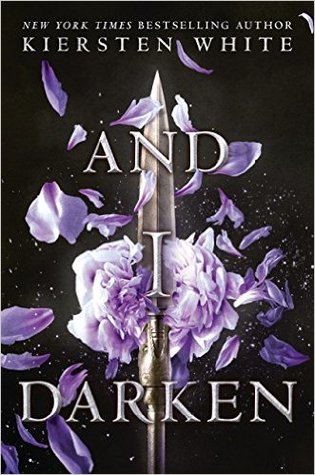More on this book
Community
Kindle Notes & Highlights
There was a man whose only role—complete with royal title—was to carry around a stool for Mehmed’s feet should he require it. There was a man who had stewardship over Mehmed’s turbans. There was a man who stood to the left of Mehmed, ready with perfume and a fan should some noisome scent dare approach the unapproachable. Because that was what Mehmed had become.
Mara shrugged, tilting her head. “God has freed me. I will never marry again. I have already written Constantine a refusal, which I will sign and send as soon as I am on my way home to Serbia.” Mara had no sword, but she had effectively used herself as a weapon. Mehmed could not harm her without risking his alliance with her father; and if he angered her, he risked strengthening Constantinople’s chances at more allies. She would not be used in any way other than the one she chose.
Love was a plague.
“Half the women in the room watched you move, craving your attention, waiting for their turn. And you looked at none of them. I knew then. I understand. I understand what it is to look upon what you are supposed to have and feel nothing.” She waited, then whispered, “I understand.” Radu realized tears had formed in his eyes. “You do?” “I do. As your wife, I would expect only your friendship. Nothing more.” She looked at the ground, and a blush spread across her cheeks. “And I would request that my maid, Fatima, be allowed to accompany me. Always.”
“Nazira, it would be my greatest honor to be your husband.”
She squeezed his hand, and he was surprised by how much comfort it was to be understood.
Lada obviously did not know him as he was to this city.
“I am her husband.”
No matter how much she learned—how strong she was, how clever or brutal or loved—her father still dictated her life. “Better a sultan than my father,” she whispered.
“Fathers do not live forever,” Bodgan said, shrugging. But he used the Turkish word for father. The word Janissaries used to refer to the sultan.
“Revolt that way!” Lada shouted, pointing. “Glory and honor if you protect the sultan by my side this way!”
“You always choose him.” “I always will,” Radu whispered.
Ilyas, who had allowed her to train with his men. Ilyas, who had given her a chance to prove herself and accepted it when she did. Ilyas, who had given her responsibility in an empire where she should have been invisible. Ilyas, who had stabbed her. She did not know whether to hope he died quickly or lingered in agony.
“You saved all our lives.” “You once told me some lives are worth more than others. How many deaths before the scales tip out of our favor?”
“I think sometimes when balancing a nation against a single life, impossible decisions must be made. Huma made the decision. Whether it was right or wrong is beside the point. It is done.”
“Souls and thrones are irreconcilable.”
“I did not love him. I worshipped him. And then he betrayed us by being human—so worthlessly, weakly human.
You have him, Lada. You have his heart and his eyes and his soul. I have seen the way you wait for him to look at you, the way you relish his attentions. You pretend you do not love him, but you cannot lie to me.” He
THOUGH LADA DID NOT know what would happen, she was certain of two things: It would hurt, and she would need to be strong.
Her spine was steel. Her heart was armor. Her eyes were fire.
“And thrones are not the only way to secure alliances.”
“Marry me, Lada. It is the perfect solution.” Lada laughed. Mehmed’s smile grew, until he realized her laugh was not a sweet breeze of delight, but a brutal desert wind carrying stinging sand in its wake. “I will never marry.”
Love was a weakness, a trap.
Lada made her face stone, her heart a mountain. A mountain that would never be pierced to let cold, clear water flow. “Nothing holds me here.”
She would take what should be hers.
What must be sacrificed to secure a future where no one can touch you? Lada knew now exactly how much she had to lose, because she was about to cut out her heart and leave it. The two men—the only two people—who had been constants in her life would be left behind. Radu and Mehmed had both given her something she could not give herself, had seen her in a way no one else had and no one else ever would. They looked at her, ugly Lada, vicious Lada, and saw something precious. And she looked at them and saw Radu, her brother, her blood, her responsibility, and Mehmed, her equal, the only man great
...more
And so she cut out her heart and offered it as a sacrifice. She would pay whatever price her mother Wallachia demanded.
“Lada Dracul. I am no longer the daughter of the dragon.” She lifted her chin, sights set on the horizon. “I am the dragon.”
The central aspect I wanted to explore was the path a person takes to get to the point where they can justify doing terrible things in the name of good. What motivations sway them? What stones laid in childhood become the foundation legacies are built


